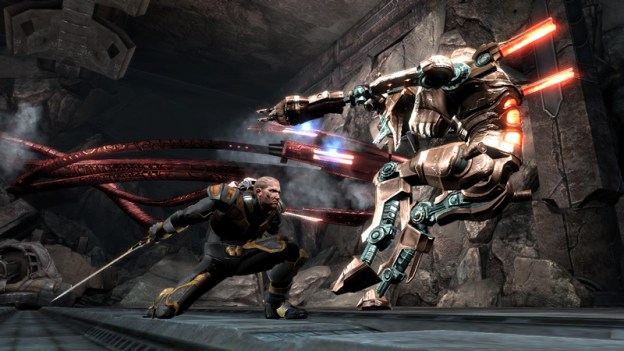
For the majority of the past half-decade, developers Silicon Knights and Epic Games have been locked in a vicious legal battle. The former claims that Epic failed to fully document the feature set found in its famous Unreal Engine, thus sabotaging not only Silicon Knights’ titles built on top of this technology, but also games developed by a number of other companies. Further, it claims that instead of improving support for the Unreal Engine, Epic was actually channeling all of the licensing money it earned via the tech to improve its own Gears Of War series (to the detriment of possible competitors using the same engine). In turn, Epic claims that Silicon Knights has repeatedly violated the terms of its Unreal Engine licensing contract, to the point that the former has infringed on the latter’s copyrights.
That’s all a lot of “he said, she said,” but the important point here is that Epic eventually won the battle. In May of this year a court in North Carolina ruled that Silicon Knights had failed to provide ample evidence of its claims against Epic. As a result, the court decided to award Epic Games a sizable $4.45 million ($2.65 million for Epic’s counterclaim against Silicon Knights, and $1.8 million for Epic’s claim that Silicon Knights had infringed on its copyrights to the Unreal Engine).
While that victory is certainly a feather in the obsessively well-rendered cap of Epic Games, things would only get worse for Silicon Knights. On November 7 the court ordered Silicon Knights to recall and destroy any unsold copies of games it had created using the Unreal Engine technology. Silicon Knights has never been what you’d describe as a prolific developer, so while this directive affects only a small handful of games, it’s still a pretty striking decision. The list of titles Silicon Knights has to scrap includes games we barely know anything about (The Sandman, The Box/Ritualyst, and Siren in the Maelstrom) but also two titles that have been on retail shelves for quite some time. Specifically, 2011’s X-Men: Destiny and 2008’s Too Human.
According to the court order, Silicon Knights has until December 10 to gather and destroy all copies of these titles. That’s a little over a month, and while we don’t know exactly how many copies the company has to find and destroy, this seems like a massive undertaking, especially given recent rumors that only five employees remain at Silicon Knights. Whether the company can fulfill its obligations to the court remains to be seen, but to be honest with you we’re more interested in seeing how Silicon Knights fares after this event has been consigned to the annals of history. The company has been teetering on the brink of collapse ever since the Activision-published X-Men: Destiny proved an expensive failure, and this court order looks increasingly like a major nail in the developer’s coffin. Expect a report on the fallout just in time for the holiday season.


